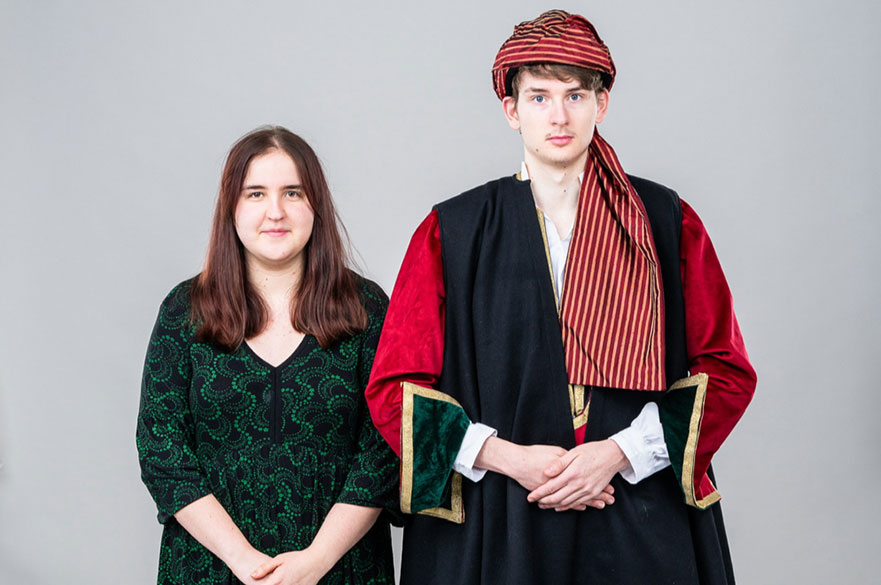Funding boost for research into fast-tracking rapidly deployable vaccines
Scientists have received funding to begin pre-clinical trials for a Zika virus DNA vaccine that can be manufactured within weeks and safely be deployed globally in future epidemics.

Scientists from the University of Nottingham, Nottingham Trent University, University of Leeds and the MHRA are collaborating on this project. They have received funding from the Department of Health and Social Care as part of the UK Vaccine Network (UKVN), a UK Aid programme to develop vaccines for diseases with epidemic potential in low and middle-income countries (LMICs).
Dr James Dixon at the School of Pharmacy and Professor Janet Daly (Director of the University of Nottingham’s Wolfson Centre for Global Virus Research), are leading the programme, which builds on work from a previous contract.
Now, thanks to this £1.86 million funding, work can progress to test the platform in challenge models and complete pre-clinical trials. The team are working with Touchlight DNA Services Ltd, a developer of a novel synthetic DNA platform, to enable rapid scale-up and deployment of the new vaccine as a rapid response.
The advantages of DNA vaccines are that they can be produced rapidly and cheaply and do not require cold-chain storage unlike mRNA vaccines. This should make DNA vaccines ideal for responding to future disease outbreaks, especially in poorer regions of the world.
Most DNA vaccines under trial do not work well if delivered using a traditional needle and syringe and instead require an expensive device to deliver the vaccine through the skin (either by 'firing' it, using pressure with a 'gene gun', or using a mild electric shock, electroporation).
The Nottingham team have developed a solution to this problem by mixing the DNA in a special formulation so it can be given by a simple injection.
Professor Daly explains: “We have used Zika as an example disease for which there is no vaccine available yet, which is also true for the related dengue virus. Experience has shown that the usual approach of making a vaccine for Zika or Dengue may cause the body to make misdirected immune responses and lead to worse disease if a person is later exposed to a similar virus (so called antibody-dependent enhancement of disease).
“To avoid this risk, our vaccine contains a non-structural protein (NS1) instead of the envelope protein. We have optimised our vaccine and shown that mice vaccinated with it produce a strong immune response. Our aim in this project is to show we can produce the vaccine in sufficient quantity and at high levels of purity and confirm that the vaccine is able to protect laboratory animals against becoming sick when exposed to Zika virus.”
The project will involve trialling the use of synthetic manufacture of the vaccine rather than the usual bacterial processes. This process can cut the time of development from 6 months to 6 weeks.
"Solving the issues that have prevented DNA vaccines from being more widely used could have a significant impact on pandemic prevention in the developing world and globally. Importantly, this approach allows a new class of DNA vaccines to be employed for many other diseases, as a rival to the new mRNA vaccine approaches.”
Louise Wainwright, Deputy Biological Support Facilities Manager in Nottingham Trent University's School of Science and Technology, said: "We are delighted that the outcomes seen in the first phase of this project have been recognised and we are pleased to be able to continue our collaboration and to offer our expert knowledge and skills to support the vaccine’s development and progression towards the clinic."
This is a 2-year project and the team aim to take this approach to human clinical trials by 2026.
-
Notes for editors
Press enquiries please contact Dave Rogers, Public Relations Manager, on telephone +44 (0)115 848 8782, or via email.
Nottingham Trent University (NTU) received the Queen’s Anniversary Prize for Higher and Further Education in 2021 for cultural heritage science research. It is the second time that NTU has been bestowed the honour of receiving a Queen’s Anniversary Prize for its research, the first being in 2015 for leading-edge research on the safety and security of global citizens.
The Research Excellence Framework (2021) classed 83% of NTU’s research activity as either world-leading or internationally excellent. 86% of NTU’s research impact was assessed to be either world-leading or internationally excellent.
NTU was awarded The Times and The Sunday Times Modern University of the Year 2023 and ranked University of the Year in the Whatuni Student Choice Awards 2023. It was awarded Outstanding Support for Students 2020 (Times Higher Education Awards), University of the Year 2019 (Guardian University Awards, UK Social Mobility Awards), Modern University of the Year 2018 (Times and Sunday Times Good University Guide) and University of the Year 2017 (Times Higher Education Awards).
NTU is the 5th largest UK institution by student numbers, with approximately 40,000 students and more than 4,400 staff located across five campuses. It has an international student population of 7,000 and an NTU community representing over 160 countries.
Since 2000, NTU has invested £570 million in tools, technology, buildings and facilities.
NTU is in the UK’s top 10 for number of applications and ranked first for accepted offers (2021 UCAS UG acceptance data). It is also among the UK’s top five recruiters of students from disadvantaged backgrounds and was the first UK university to sign the Social Mobility Pledge.
NTU is ranked the second most sustainable university in the world in the 2022 UI Green Metric University World Rankings (out of more than 900 participating universities).
- Subject area: Sciences including sport sciences
- Category: Press office; Research; School of Science and Technology


